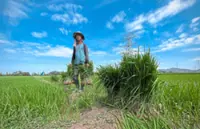Daily pickings: Vegetable farmers not only have to contend with demand, but also the weather for their produce.
PETALING JAYA: Farmers throughout the country have dumped tonnes of vegetables due to the closure of markets over the long weekend, but they say that the situation will be back to normal after the Hari Raya festivities.
Cameron Highlands Vegetable Growers Association deputy president Lau Weng Soow said there was a vegetable surplus in Cameron Highlands three weeks ago and that during the long Hari Raya holiday, farmers ended up having to throw away vegetables.
Already a subscriber? Log in
Save 30% OFF The Star Digital Access
Cancel anytime. Ad-free. Unlimited access with perks.





